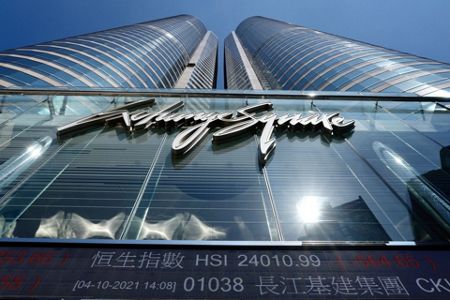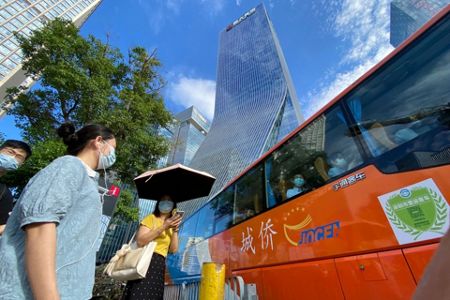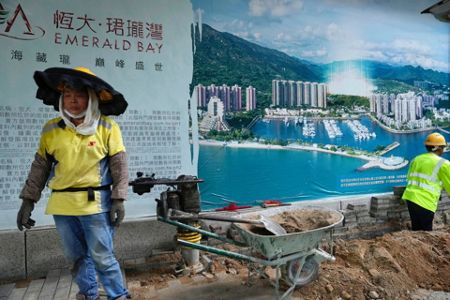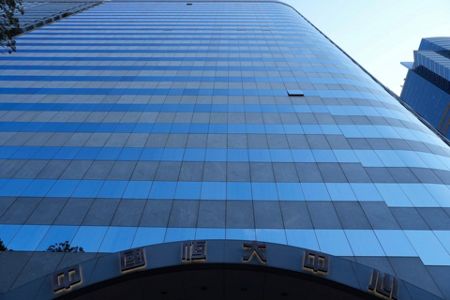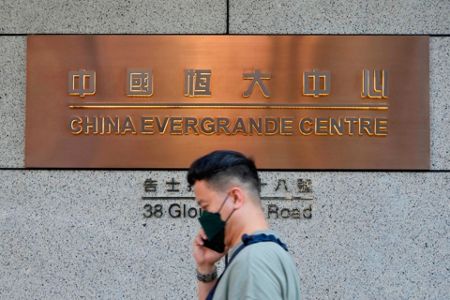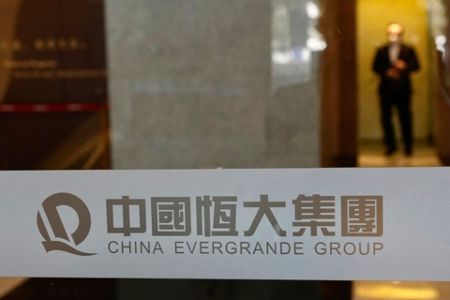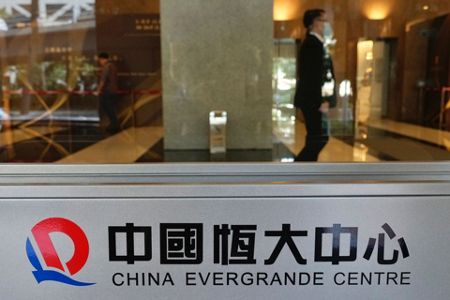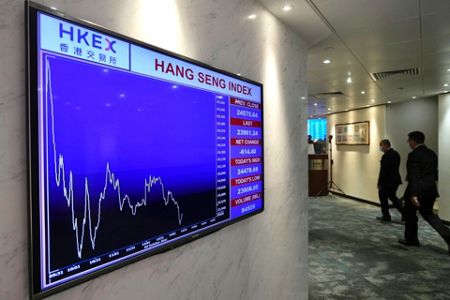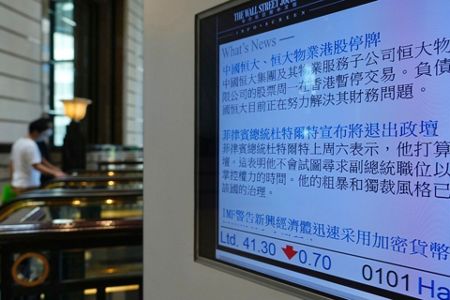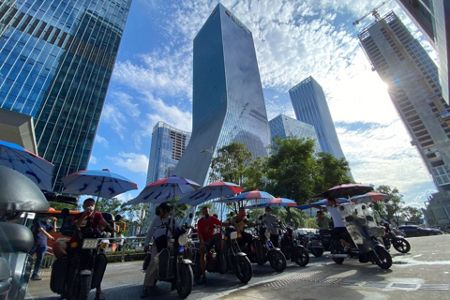HONG KONG (AP) — Shares in troubled real estate developer China Evergrande Group and its property management unit Evergrande Property Services were suspended from trading in Hong Kong on Monday as investors awaited the next steps in the saga of its debt crisis.
Cailian, a Chinese online news service affiliated with the state-run newspaper Securities Times, said another developer, Hopson Development Holdings, was planning to acquire a majority share in Evergrande Property Services Group.
Hopson suspended trading of its shares in Hong Kong on Monday. The suspension was “pending the release of announcement(s) in relation to a major transaction of the company under which the company agreed to acquire the shares of a company . . . listed on the stock exchange," it said in a filing.
Hopson’s public relations department said the company would not comment on “market rumors.”
Evergrande Property Services said in its announcement to the Hong Kong exchange that its shares were suspended from trading pending an announcement related to a merger or takeover.
Phone calls to Evergrande's PR office in Hong Kong rang unanswered and the company's offices elsewhere in China were closed for a holiday.
Evergrande has been struggling to avoid defaulting on billions of dollars of debt. The company owes billions to banks, customers and contractors and has been selling off assets to resolve its cash crunch.
Analysts say the Chinese government was reluctant to be seen as bailing Evergrande out at a time when authorities are pushing companies to reduce debt levels. A takeover of the company's property management arm would be one step in restructuring it by splitting it into smaller entities, said Francis Lun, CEO of Geo Securities in Hong Kong.
The central government might ask local governments in turn to provide funding for Evergrande to finish its many incompleted projects so that they can be delivered or sold to buyers, enabling the developer to pay its contractors, he said.
“As far as the Chinese government’s concerned, this is the best way forward. And of course, in doing so, I think some creditors will be hurt, mostly overseas creditors,” Lum said.
Evergrande is one of China’s biggest private sector conglomerates, with more than 200,000 employees, 1,300 projects in 280 cities and assets of 2.3 trillion yuan ($350 billion). It owes creditors some 2 trillion yuan ($310 billion).
The company ran up billions of dollars in debt building apartment complexes, malls and office towers over the years. Its situation worsened after August 2020, when Beijing tightened controls on financing for China’s 12 biggest developers, forcing them to reduce corporate debt loads that are seen as a threat to the economy.
Evergrande has been selling off various assets to try to alleviate the problem. Last week, it sold its $1.5 billion stake in Shengjing Bank to cover its debt to the state-owned lender based in northeastern China.
China Evergrande Group's shares have lost more than 80% of their value this year and ratings agencies say it is at risk of defaulting on its debts.
Like Evergrande, Hopson, based in Guangdong adjacent to Hong Kong, is one of China's biggest property companies. Reports show it has a much lower debt to equity ratio than its larger rivals.
Jitters over a slowdown in China's economy and potential turmoil in its vital property industry have rattled world markets in the past few weeks.
The fear is that a default by Evergrande could cascade throughout the Chinese economy and even world financial markets.
“I think the government is really close to a resolution over the Evergrande problem because it cannot drag on forever, it will hurt everybody involved," Lum said.
Hong Kong's benchmark Hang Seng index dropped 2.2% Monday on heavy selling of real estate companies and banks.
___
Wu contributed from Taipei. AP researcher Henry Hou in Beijing and AP Business Writer Elaine Kurtenbach in Mito, Japan, also contributed.
Copyright 2021 The Associated Press. All rights reserved. This material may not be published, broadcast, rewritten or redistributed without permission.




